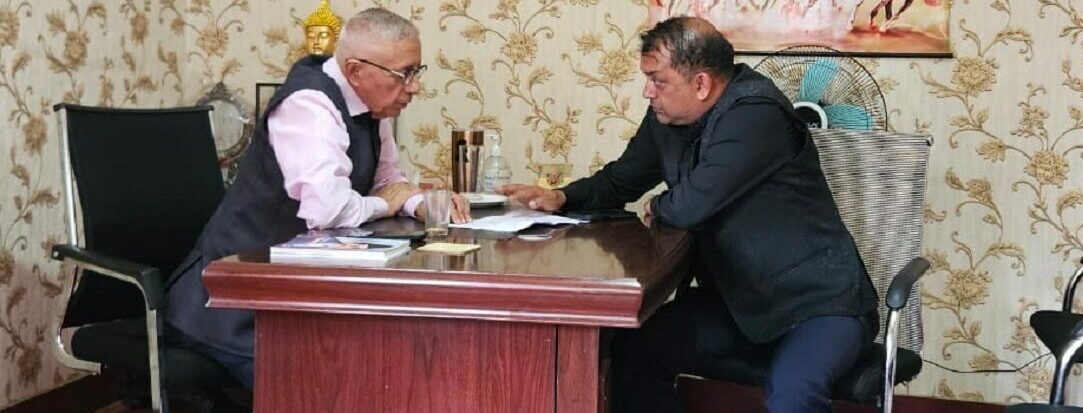KATHMANDU: Nepali Congress (NC) General Secretary Gagan Thapa, a leading voice demanding a parliamentary probe into Home Minister Rabi Lamichhane’s affairs, is intensifying efforts to craft further strategies.
Thapa’s push for a parliamentary inquiry into Lamichhane’s alleged misappropriation of cooperative funds in Pokhara and Butwal has sparked escalated discussions within senior Nepali Congress ranks, according to insiders.
Thapa revealed his discussions with Dr. Rabi Muchiheyo on Sunday, another influential figure, to strategize regarding the cooperative fraud case. He also met with Dr. Shekhar Koirala at Koirala’s liaison office in Bishalnagar, Kathmandu.
While labeled as a routine meeting, the dialogue between Koirala and Thapa centers on devising additional tactics within parliament.
Their discussions encompassed national politics, Nepali Congress’s ongoing parliamentary disruptions, and internal party dynamics. Thapa briefed Koirala on recent discussions with President Ram Chandra Poudel and Prime Minister Pushpa Kamal Dahal “Prachanda.”
A photo shared on social media by Koirala’s private secretary, Dinesh Chandra Thapaliya, highlights the seriousness of deliberations on national and internal party matters during the meeting.
Thapa remains resolute in his parliamentary stance against Home Minister Lamichhane, a former ally. Some perceive NC’s actions as an attempt to destabilize the current government by targeting Rabi Lamichhane.
CPN-UML’s chief whip Mahesh Bertaula alleges that Nepali Congress aims to overthrow the coalition by attacking Rabi Lamichhane within parliamentary confines.
While Gagan spearheads the campaign against Rabi in parliament, Shekhar advocates for power-sharing between Nepali Congress and CPN-UML to address the deepening political crisis.
Dr. Shekhar emphasizes the necessity of collaboration between NC and UML to navigate the challenges, resonating with Koirala’s past endeavors, such as Kedar Karki’s appointment as Chief Minister in Koshi Province, facilitated by UML’s support.
Despite evolving leadership dynamics within Nepali Congress, advocating for UML collaboration faces resistance, particularly regarding the leadership of Sher Bahadur Deuba, the NC President, who commands substantial support within the party and parliamentary ranks.









Comment